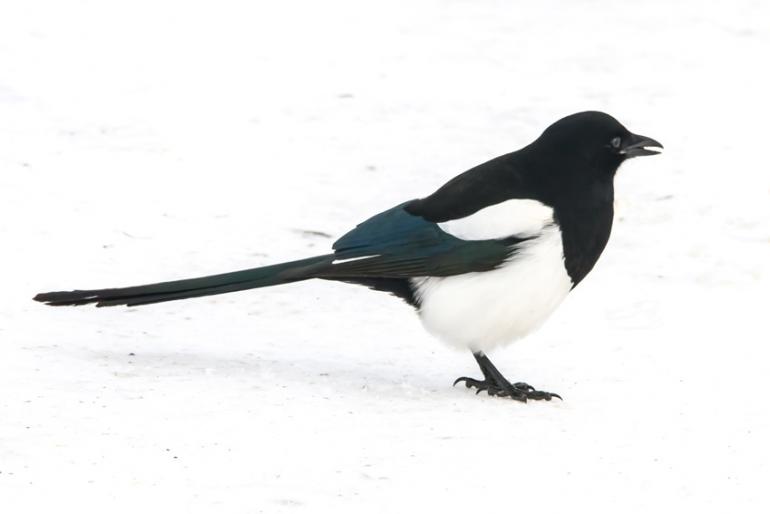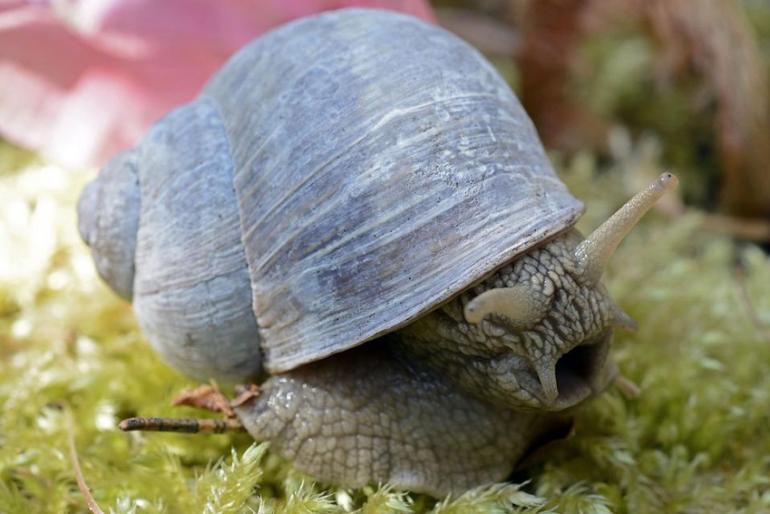Wild West Words: Magpie, Mollusk, & Gazette
The Curious Origins of the Western American Vocabulary
Magpie
It’s hard to ignore a magpie. Covered in bold, black and white plumage, the magpie shrieks and chatters conspicuously from rooftop, fencepost and tree limb.
The bird is ubiquitous in the towns and on the landscape of our state. Intelligent and resourceful, they are opportunistic generalists, adapting easily to seasonal and environmental changes. A magpie menu consists of worms, insects, carrion, fruits and grains; basically, whatever is abundantly available and remotely edible.
Several stories surround the origin of the term magpie. One has the pie part the same as the baked pastry, comparing the bird’s omnivorous diet with the miscellany of a pie’s ingredients. Another has the bird’s black and white plumage being “pied.” The most likely origin of pie, however, is the Latin word pica, itself meaning simply “magpie.”
The mag portion of the bird’s name is an old pet form of the common female name Margaret, reflecting an unflattering perception that the bird, like the average woman, chatters loudly.
The magpie belongs to the genus pica, a word it shares with a style of type. Some sources suggest the connection is the black type on a white page, the color scheme of the magpie’s plumage.
What’s more, if you have an abnormal craving for non-foods such as dirt, starch, clay or paper, that’s a pica, Latin for magpie, a miscellaneous, nondiscriminating feeder.

Mollusk
Landlocked as Montana is, there is enough water in our state to host aquatic invasives. Troublesome species like the quagga mussel, native to the waters of the Ukraine, and the zebra mussel, native to the Caspian and Black Seas of Eastern Europe, have been detected in Montana waters. Left to proliferate in our lakes and reservoirs, these invasives have the potential to damage fisheries, power facilities, and the aquatic recreational industry. With mussels and mollusks on our mind, it’s a good time to investigate their names.
Clams, oysters, snails, cuttlefish and octopuses: these are a few familiar examples of the thousands of species of the phylum mollusca, or mollusks. Plentiful on our planet, over 100,000 species of these invertebrates have been identified, with more being described every year.
Most mollusks are buttressed by their shells, which the animals construct by secreting a special material from an organ called the mantle. But underneath that protective shell is a soft, unsegmented, and vulnerable body. The 17th century Swedish botanist Karl Linnaeus, inventor of the modern biological naming system, classified these creatures by their most obvious attribute: mollusk comes from the Latin mollis, meaning “soft,” or “flexible.”

Mollusk has some engaging etymological kin. Consider the term mollify, meaning “soothe or placate.” Mollify literally means “to soften in intensity.”
An emollient is a medicinal agent to soothe and soften living tissue. This word, too, is a sibling of mollusk and mollify by virtue of its Latin progenitor, mollis, or “soft.”
Mussel, the word for a specific class of mollusk, is ultimately the same as muscle. Both come from the Latin musculus, “little mouse.“ The designation was applied to the mollusk as long ago as the 1200s because of a similarity in color and shape. By the 1400s, the variant muscle specified the bundles under the skin because their movements resembled those of a mouse under covers.
Gazette
Montana’s largest city has a newspaper called the Billings Gazette. The tabloid shares a name with others across the U.S.: Boston Gazette, Delaware Gazette, Estes Park Trail-Gazette, and others. What sets the Gazettes apart from the Heralds, Journals, and Tribunes?
A fascinating etymological history, that’s what. The original gazettes were first published in Venice in the mid-1500s. Distributed monthly, Venetian gazettes were informal news and gossip sheets that could be purchased or read for a fee. The coin exchanged for the news sheet was called a gazetta, one possible word origin of gazette. Another theory has gazette as the diminutive form of the Italian word gazza, “magpie,” a bird that tattles and chatters, like the gossip sheets of 16th century Venice.
Similar publications soon made their appearance in England and France. London’s gazettes disseminated reports of lurid crimes, news of explorations and discoveries, social gossip and commercial advertisements. The Oxford Gazette, founded in 1665, abandoned trivialities. Considered England’s first true newspaper, the Oxford Gazette was a government publication announcing official appointments, bankruptcies, and public notices.
America’s first gazette was founded in Massachusetts in 1719. The Boston Gazette, published weekly, became the most popular platform for relaying opposition to the British Crown during the time of revolutionary America. Montana’s Billings Gazette was first published in 1885 on a single sheet of paper, and today claims to be geographically one of the most widely distributed papers in the nation.












Leave a Comment Here